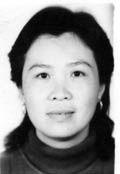(Clearwisdom.net)
Forty-year-old practitioner Ms. Chen Lijun was from Zhengzhou City, Henan Province. She was sent to Shibalihe Women's Forced Labor Camp in Zhengzhou City twice without any legal grounds. The headwomen Zhou Xiaohong and Ren Yuanfang and other police in the labor camp subjected Ms. Chen to all kinds of tortures, including "Tying the Ropes" (1). They would also strike her violently all over her body including her chest, stomach and private parts. The policewomen also ordered drug addicts to seal her mouth with used menstrual pads or put excrement on her mouth. As result of the persecution, Ms. Chen died at 4:00 p.m. on September 29, 2004.
During her second detention in the labor camp, the headwoman called her to the second floor of the office building with the excuse that she did not do the morning exercises. She then ordered three drug addicts to take turns beating Ms. Chen on her chest, stomach and back, causing Ms. Chen to have a fever and cough for over a month. Ms. Chen could no longer endure such inhumane torture and insults, so she went on a hunger strike to protest the persecution by the labor camp. Eventually she became very weak and was sent to the hospital. She was diagnosed with tuberculosis, although it was probably a lung inflammation due to the beatings. She was completely disfigured.
Afraid of being responsible for her condition, the forced labor camp arranged medical bail for Ms. Chen in an attempt to transfer the responsibility to Ms. Chen's family. Her family refused to accept the arrangement and requested that the labor camp restore Ms. Chen's health first before sending her home. The labor camp then sent Ms. Chen to the Qinling Deputy Office in the Zhongyuan District of Zhengzhou City, where she registered as a resident. The deputy office had to send her to the hospital. During that period, Ren Yuanfang from the labor camp forced Ms. Chen to borrow several thousand yuan from her friends, family and another practitioners for so-called medical expenses.
Ms. Chen was afraid of being sent back to the labor camp. She escaped from the hospital on September 7, 2004. Since she escaped, the labor camp and other related people were afraid that their vicious acts would be exposed and they started a search for her. They even threatened Ms. Chen's aunt in Leihe City. They told her aunt to send her back if she saw Ms. Chen Lijun. After she escaped from the hospital, Ms. Chen went to her aunt's. But her aunt was scared and didn't dare accept her. She even asked her to write a pledge to return to the labor camp. Ms. Chen had nowhere to go and no money. She asked for help from a non-practitioner friend. Her friend lent her 50 yuan. She then went to the home of a practitioner she knew. Ms. Chen used to be a fair-complexioned, good-looking woman. Now she looked pale and yellowish and was skin and bones, her arms as thin as a child's. She could only walk with someone's help and could only eat rice soup. She couldn't recognize money and was often mentally confused. She couldn't even remember people's names.
During her years in the labor camp, Ms. Chen Lijun endured extremely brutal torture, both mental and physical, until she became perpetually terrified. She dared not stay at the practitioner's home for long. Seeing any strangers would make her very nervous and tense. She often recalled the several layers of iron gates at the Shibalihe Women's Forced Labor Camp and would tremble with fear. Because she experienced so much unimaginable terror, she did not even dare to publish her torturous experience on the Clearwisdom website. She was afraid that the authorities would intensify their persecution if she exposed them. She was afraid of returning to the evil cages. Before she could tell all of her experiences of being persecuted, she died at about 4:00 p.m. on September 29, 2004.
After Ms. Chen died, the Zhengzhou City Zhongyuan District Police Department, the former "610 Office" of Zhongyuan District, the Qinling Deputy Office of Zhongyuan District, and the hospital where Ms. Chen once stayed started to interfere. They examined where Ms. Chen last resided before her death (another practitioner's home) and took Ms. Chen's photographs. They also harassed and monitored other practitioners who had cared for Ms. Chen. It seemed that they might try to transfer the responsibility of Ms. Chen's death to the practitioners who had taken care of her during her last days. Ms. Chen's younger brother was also scared of the police and did not allow practitioners to take pictures of Ms. Chen's body.
October 15, 2004
Note:
(1) "Tying the Ropes"- The police tie up the practitioner with a thin rope, circle the rope around the neck, and tie the hands behind the back. Then the police use all their strength and might to tighten the rope. The rope becomes tighter and tighter around the body of the practitioner and makes it more and more difficult to breathe. The pain is so intense that the practitioner sometimes loses control of the bladder. There are instances where the rope was tightened to the point of breaking a practitioner's arm.
All content published on this website is copyrighted by Minghui.org. Minghui will produce compilations of its online content regularly and on special occasions.










